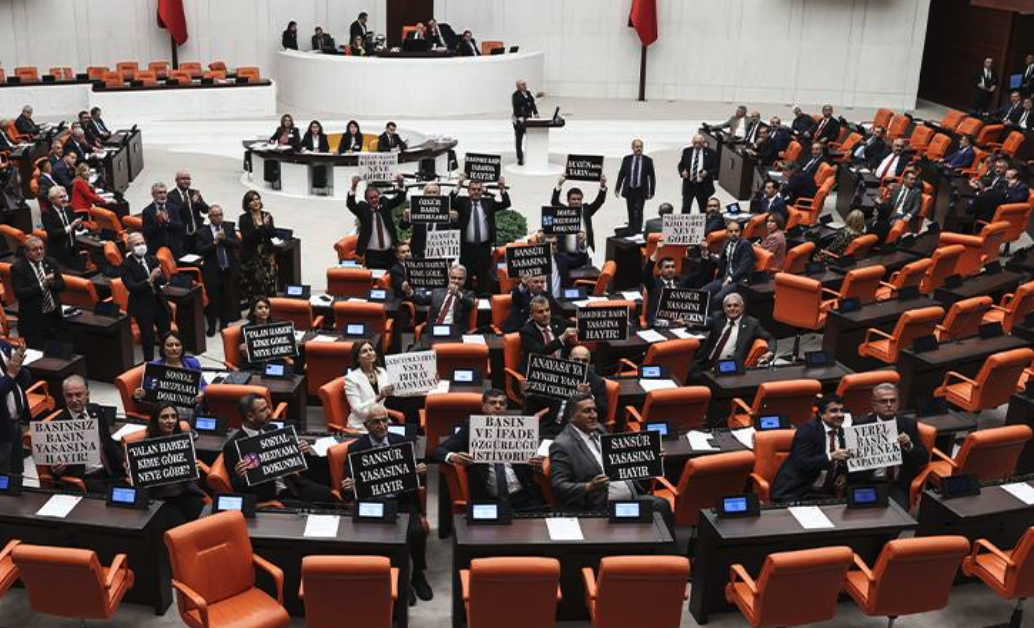The digital age has brought about a new era of challenges to our fundamental human rights, including the right to freedom of expression, privacy, and access to information. As our lives become increasingly digital, the need for experts in the field of digital rights and liberties to be present in parliament has never been greater. Unfortunately it does not appear that this will be the case after the elections in Turkey to a great extent. So far there has been confirmation of only one candidate that is deeply knowledgable on this matter and this is not enough for Turkey. By Gürkan Özturan, The Radical Democrat, April 10, 2023.
One of the most pressing issues facing many countries today is the rise of laws and regulations that seek to limit freedom online. Turkey is an outstanding and notorious example of this kind; the government in recent years passed a series of controversial amendments to its already problematic social media law that has been widely criticized for its potential to suppress free speech and undermine privacy. This law requires social media platforms to appoint a legal representative in Turkey and comply with Turkish authorities’ demands to remove content within 48 hours or face fines and bandwidth reductions.
The social media law in Turkey is just one example of the growing trend towards digital censorship and surveillance in many countries around the world. Governments are using these laws and regulations to crack down on dissent, monitor citizens’ online activities, and control the flow of information.
However, these laws and regulations are not just a threat to freedom of expression and privacy; they are also hindering economic growth. The internet has become a critical tool for innovation, entrepreneurship, and business development, and any efforts to restrict or censor the internet will inevitably have a negative impact on these areas. For example, in Turkey, many small businesses rely on social media platforms like Facebook and Instagram to reach customers and grow their businesses. The social media law has the potential to stifle this growth by making it more difficult for these businesses to operate online.
Why Experts in the Field are Needed to Ensure Freedom Online
This is where experts in digital rights and liberties come in. Members of parliament who have a deep understanding of these issues can work to ensure that laws and regulations are crafted in a way that protects fundamental human rights while also promoting economic growth and innovation.
For example, in the European Parliament, members of the Digital Rights and Liberties Committee work to ensure that digital policies and regulations do not infringe on citizens’ rights to privacy, free expression, and access to information. This committee has been instrumental in shaping policies such as the General Data Protection Regulation (GDPR), which has become a global standard for protecting citizens’ privacy online.
In Turkey, there is a clear need for experts in digital rights and liberties to be present in parliament to counter the growing trend towards digital censorship and surveillance. The recent disinformation law, has raised concerns among many civil society organizations and experts for its potential to limit free speech and impose duties on service providers to monitor users’ online activities.
The most recent Freedom on the Net report by Freedom House rates Turkey as “not free” in terms of internet freedom, citing the country’s widespread censorship, surveillance, and online harassment of journalists and opposition figures. As an advocate for digital rights and liberties, I hope to see an increase in Turkey’s rating in future reports, which would require genuine efforts from the government to respect freedom of expression and protect online privacy. A digital rights and liberties law that is formed on the basis of rights and liberties can be a starting point in this regard.
People who have specialised in the area of digital rights and liberties can also play a key role in educating the public and policymakers about the importance of these issues. By raising awareness of the threats to digital rights and liberties, experts can build public support for policies that protect these rights and help to ensure that lawmakers are held accountable for their actions.
The need for experts in digital rights and liberties to be present in parliament has never been greater. The rise of laws and regulations that seek to limit freedom online is a threat to our fundamental human rights, as well as economic growth and innovation. Members of parliament who have a deep understanding of these issues can work to ensure that laws and regulations are crafted in a way that protects these rights while also promoting economic growth and innovation. They can also play a key role in educating the public and policymakers about the importance of these issues, building public support for policies that protect these rights, and holding lawmakers accountable for their actions.
Gürkan Özturan is a registered member of the Journalists Union of Turkey and International Federation of Journalists, currently works as the coordinator of Media Freedom Rapid Response, at the European Centre for Press and Media Freedom in Germany’s Leipzig.

